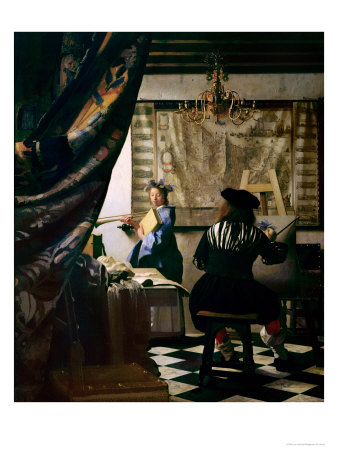From a study by Waugh, Russell F. and Riddoch, Jane V.:
There are few studies measuring the effects on painting quality of playing background classical music at special schools. Primary students with severe intellectual disabilities (N=24) were taught abstract painting in a two-part method. The first part involved a Pictorial Only method and the second, immediately following it, involved a Pictorial plus Classical Music background. Guttman scales were created to measure both quality of painting and, separately, classroom behavior, weekly, for six consecutive weeks. A mixed between-within subjects ANOVA (General Linear Model, repeated measures with SPSS) found: (1) that interaction effects did not reach significance; (2) a significant main effect for method of teaching on painting quality, and on classroom behavior, with the Pictorial and Classical Music method being significantly better; (3) a significant main effect for practice over the six weeks on painting quality, with the Pictorial and Classical Music method being significantly better; and (4) a non-significant main effect for practice over the six weeks on classroom behavior. Teachers in special schools should try playing classical music as background during the painting sessions of their students, not only to improve painting quality, but also to improve student attitude and behavior in class [emphasis added].
The reporting method in this study is a bit confusing, but it boils down to the fact that classical music played during classroom instruction has a significant positive effect on both painting skill and student behavior. I think not only in special schools, but in all schools, this would work. Remember, the music does not have to be loud enough to notice it—in fact, as previously-cited studies have shown, you don’t even have to have ears for music to have an effect on you. And clearly, you do not have to have familiarity with the music, nor any special training to receive a good effect.
